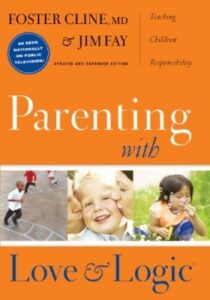Feel the Fire: Embracing Conflict
Many articles about conflict focus on the resolution process as the savior of personal and business relationships. But let’s discuss the benefits of mentally embracing the conflict, itself. A common belief is that conflict indicates a breakdown in the relationship. But the reality is that wrestling successfully with conflict can serve to strengthen the relationship as well as each individual’s character and sense of self.
Back to the Fire
Are you one of many people that say, “I hate conflict”? Then you know what it is like to dodge potentially incendiary conversations by putting on a good face in order to keep the peace. You find yourself agreeing to disagree before the subject of disagreement is even thoroughly presented. Maybe you put an end to the conversation, or even the entire relationship, at the slightest hint of a differing perspective. But what sort of relationship can only exist if everyone thinks the exact same way all of the time? And how effective is a partnership where you can only discuss the topics on which you agree? It is time to stop taking a fearful approach to conflict and avoiding deeper issues brewing underneath surface.
According to Michael Batshaw, LCSW and author of 51 Things You Should Know Before Getting Engaged, “…conflict isn’t going to end the relationship, it’s avoiding the conflict [that might].” So there’s good reason to embrace interpersonal conflict. If managed well, the results can be more openness towards differing opinions, beliefs and values, increased cohesion, and greater authenticity.
Instead of turning your back to the fire, encourage yourself to go back into the fire! Do this by challenging your view of what a disagreement means.
- For one, disagreement does not necessarily indicate relational incompatibility. It simply means that you and your friend, partner, spouse or family member are two different people with differing experiences, interests and personalities. Imagine that!
- Additionally, the objective of engaging in the conflict is NOT to win. When disagreements are based on two subjective opinions, you would be hard-pressed to find a winner. Rather, you are seeking to be your most honest self in the relationship, to learn to accept differences and to find resolution.
- They are not the enemy. When you fight to win, you make the other person the enemy. Instead of sharing ideas, you gather ammunition. Perceiving your partner or loved one in this manner is a sure-fire way to invite greater problems into the conflict.
- Conflict creates opportunity. When people are honest about who they are and what they think, and are willing for the other do the same, they open themselves to see the world from a different perspective. Being open to another viewpoint does not require you to agree, but it does challenge you to widen your lens. You also get the chance to explore creative problem solving.
The Fire Within
Relationships are only one way to embrace conflict. You do not always (necessarily) need to step outside of yourself to encounter a struggle. At various points in life, each of us will experience inner conflict. It can have its benefits as well. Read more about this topic in the follow-up to this blog, Inner Conflict: Harnessing the Fire Within.
After embracing the conflict, it is still vitally important to address it in a healthy manner that leads to resolution and personal and relational growth.
If you need help with conflict resolution (either internal or external), contact Fuller Life Family Therapy Institute.
![]()
 Contributed by
Contributed by
Supervised by Dr. Amy Fuller, PhD, LMFT-S, LPC-S
References
Seltzer, L. F. (2010). Can you and your partner agree to disagree?: Expert advice on why we hate disagreemet and how to live with it. Psychology Today. Retrieved from https://www.psychologytoday.com/blog/evolution-the-self/201009/can-you-and-your-partner-agree-disagree
Tartakovsky, M. (2016). How conflict can improve your relationship. Psych Central. Retrieved from http://psychcentral.com/lib/how-conflict-can-improve-your-relationship/
Tomkins, T. C. & Rogers, K. S. (2004). Using conflict to your advantage: Butting heads is not always bad. Graziado Business Review, 7(1). Retrieved from https://gbr.pepperdine.edu/2010/08/using-conflict-to-your-advantage/
What kinds of issues are addressed: Intensive therapy addresses critical issues. (n.d.). Retrieved from http://crucibletherapy.com/crucible-intensive-therapy-kinds-issues









